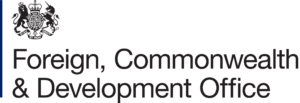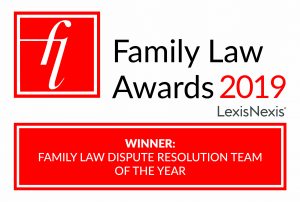The world has changed a lot since we started out in 1987 and our work has developed greatly in that time too. Have a look below at how we have grown and evolved over the years.
1987 – Humble Beginnings
We started life in 1987 as “Mothers of Abducted Children”. We were set up by a small group of parents committed to improving the general plight of all parents of abducted children, and to support each other. At the beginning there were only 70 cases of international parental child abduction recorded by us each year.
1989 – A Wider Scope
In 1989 we changed our name to “reunite – National Council for Abducted Children”. We made the change to reflect the fact that our focus is on the children involved, and that we support parents regardless of their gender.
We also extended our work to cover the prevention of abduction and contact across international borders.
1990 – Charity Status
In this year we gained charity status and held our first meeting of the All-Party Parliamentary Group on Child Abduction to develop strategies to raise the profile of child abduction at a ministerial level.
1993 – First Staff Member & the ‘Home and Away’ report
After a few years of steady expansion we employed our first advice line staff member. Before this our advice line was manned entirely by volunteers.
We published our report ‘Home and Away: Child Abduction in the Nineties’, which was the culmination of a project in which over 100 individuals and organisaitions provided their views. The report provided a snapshot of the situation for families affected by parental child abduction, or the threat of abduction, at that time. It set out a number of recommendations about what could be done to reduce the risk of children being abducted from the UK, and how abduction cases could be positively resolved.
1994 – The Lawyers Database
We established our Lawyers Database, now known as our Lawyers Listing, to help parents access specialist legal advice. Initially there were only a handful of lawyers, but our listing has now grown to contain over 100 law firms operating across 30 different countries.
There was also a 27% increase in calls to the advice line, taking us up to 1,500 calls per year.
1995 – The Prevention Pack
In collaboration with the police services, Home Office, Foreign and Commonwealth Office and the then Lord Chancellor’s Office, we produced our first child abduction Prevention Pack. The Packs outlined steps to take to prevent a child from being taken out of the country, and over time have evolved into our set of Prevention Guides.
As we continued to grow and expand we began holding international events including the International Lawyers Conference on Child Abduction in 1995.
1996 – Working with the Police
In November 1996 we hosted a one-day conference on child abduction with the police, which led to the first police guidelines on child abduction being created.
1998 – Global Status
In December 1998 we changed our name once again to become ‘reunite International Child Abduction Centre’. We felt this change was needed to reflect the truly international nature of our work. By 1998 we were working more and more with international organisations, government departments and other bodies around the world to shape policy and share best practice.
2000 – Mediation Research Starts
In 2000 we received funding from the Nuffield Foundation to pilot a mediation scheme for use in cases of international parental child abduction. Research was needed in to how best to develop a mediation model specifically for these cases, which were felt to be too acrimonious for mediation to be successful.
2002 – First Mediation Case
After a period of research and planning we mediated our first abduction cases in 2002. These cases were all being heard under the 1980 Hague Convention in the courts of England & Wales and, as we had thought, agreements were able to be reached in some of these cases. In fact, parents were able to reach agreements in 75% of these cases.
2006 – Mediation Evaluation
In 2006 we published our evaluation of the Mediation Pilot Scheme, taking into consideration the views of parents who had used the service. This evaluation demonstrated that parents involved in cases of international parental child abduction were willing to mediate and were able to reach mutually acceptable agreements in the best interests of their families. As a result the reunite mediation department was created.
In this year our advice line team recorded 270 child abduction cases involving 414 children, and handled 6,322 calls.
2010 – First Annual Walk
Parents we support very often experience feelings of isolation as they think that they are one of the few people dealing with situations like theirs. We hosted our first annual walk in 2010 to provide parents with the opportunity to meet together, to share experiences and develop new support networks.
We have held an annual walk every year since then, hosting walks in Leicester, London and Leeds. In recent years we’ve found a home for our walks at Stave Hill Ecological Park in Canada Water, London, with the walk leading us through the lush Russia Docks woodland and around Surrey Docks.
Between 1995 and 2010 we recorded a 164% increase in the number of international parental child abduction cases reported to our advice line.
2012 – Long Term Effectiveness of Mediation Research
In collaboration with De Montfort University we undertook research looking into the long-term effectiveness of mediation in child abduction cases. The findings demonstrated that our mediation model was working very well, and that overall the long-term outcomes for children were positive.
2013 – Expansion
By 2013 calls to our advice line had increased to over 11,000 per year, with the advice line logging 1,446 new cases that year across all case types. To meet this increased need for advice, information and support, we hired two additional advice line co-ordinators, taking the total up to five.
2014 – Wrongful Retention
We worked with the All-Party Parliamentary Group to raise the issue that while the wrongful removal of a child is a criminal offence in the UK, wrongful retention is not. Our team consulted with the government, and the Law Commission recommended that the law be changed so that both types of abduction are criminal offences so that parents in both situations can gain equal support from the police.
In 2014 our advice line team handled 17,027 calls and recorded 574 cases of parental child abduction, involving 827 children.
2016 – Seminar at the British Embassy in Seoul
In 2016 we partnered with the British Embassy in Seoul to host a seminar for local judges, lawyers and other individuals who may encounter child abduction cases heard under the 1980 Hague Convention as part of their work. We brought together experts from different countries to explain the principles of the Convention and demonstrate how such cases are decided in different countries.
As well as hosting our own seminars, in 2018 our team also presented at events in Italy, Russia, Uruguay and the UK.
2018 – RCJ Mediation Pilot Scheme and new Prevention Guides
We launched our Mediation Pilot Scheme where one of our mediators is present at the Royal Courts of Justice so that parents in child abduction proceedings can speak with them face-to-face about the possibility of mediation.
In this year we also launched our newly revised Prevention Guide for England & Wales in English and Polish.
2019 – Family Law Awards Winners
Due to our pioneering work in international child cases our mediation team were awarded Alternative Dispute Resolution Team of the Year at the 2019 Family Law Awards.
In 2019 we also published our newly revised Prevention Guide for Scotland.



